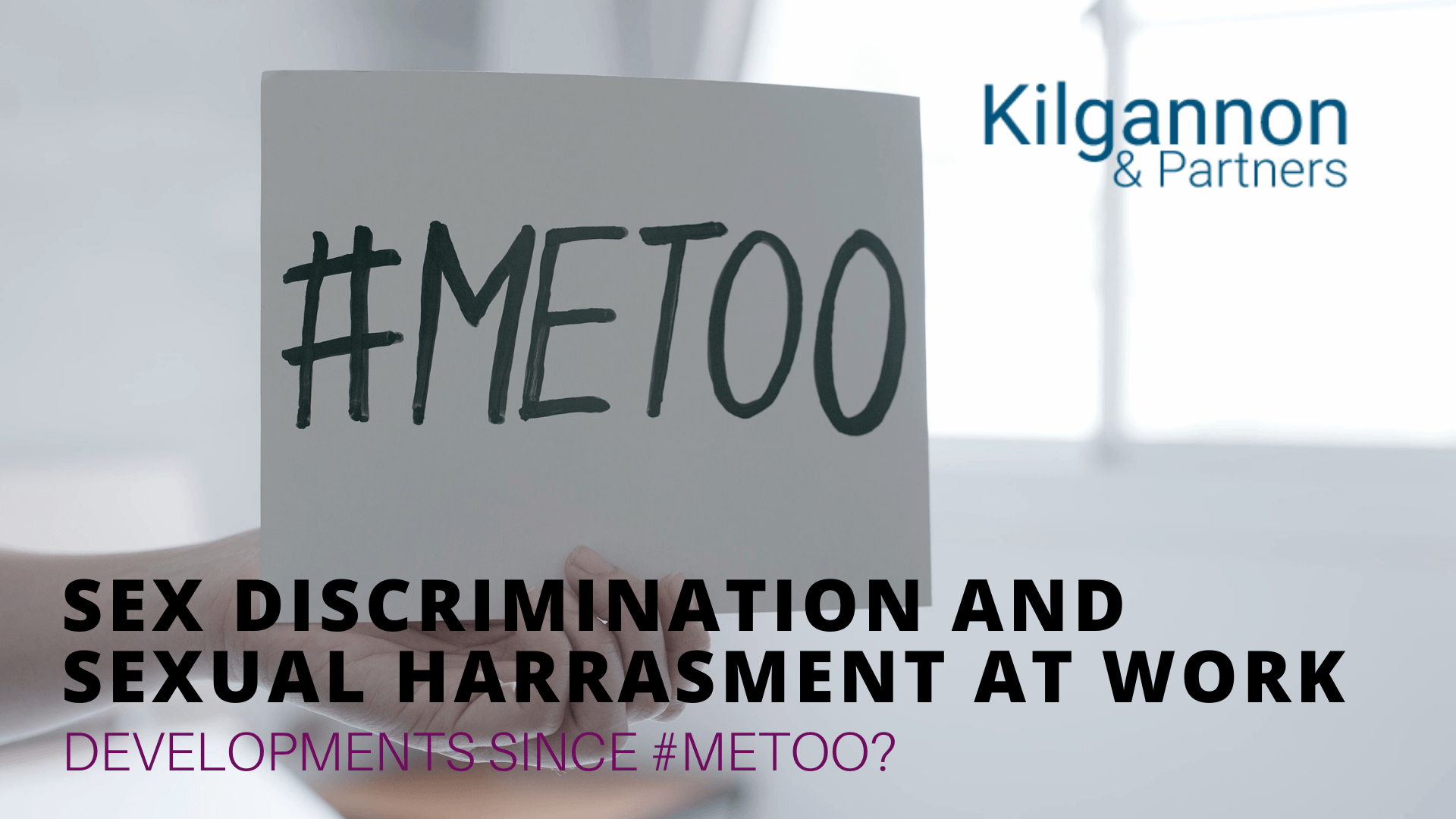Sex discrimination and sexual harassment at work
Sex discrimination and sexual harassment at work – developments since #MeToo?

We recently wrote about the case of a senior ACAS executive, Mr Woods, who was found guilty by his employer of sexual harassment in the workplace and was dismissed. Mr Woods won his claim at the Employment Tribunal for unfair dismissal, because his employer did not follow a fair process prior to terminating his employment. Mr Woods, however, was not awarded any compensation by the Tribunal in respect of his unfair dismissal due to his own blameworthy conduct and because the Tribunal found he would have been dismissed anyway even if his employer had followed a fair process.
The Tribunal judgment noted Mr Woods’ comments on the #MeToo movement, that “Things have changed since the MeToo movement, I don’t like it but I can understand it. It seems that the rules have changed” and that the “MeToo campaign had lowered the bar for sexual harassment”.
Developments since #MeToo?
The #MeToo movement has raised awareness of sexual harassment in the workplace. Sex discrimination claims, for example, increased by 69% in 2019, and reports of sexual harassment in the workplace have persisted despite the move by many to working from home throughout the Covid pandemic. We have previously commented on what employers can do to try and prevent negative workplace behaviour transcending the ‘new normal’ in our article How will bullies cope in a virtual workplace?
The use of NDAs (non-disclosure agreements, or ‘gagging orders’) has also come under the spotlight recently, particularly in sexual harassment cases. The Solicitors Regulation Authority has issued guidance on the use of NDAs, and the Equality and Human Rights Commission updated its guidance on sexual harassment in January 2020 (see Sexual harassment and harassment at work: technical guidance and Preventing sexual harassment at work: a guide for employers).
Six universities have recently pledged to stop using NDAs in respect of those who make complaints of sexual harassment.
The government has committed to introduce duties on employers to prevent sexual harassment and third-party harassment in the workplace (when parliamentary time allows), although the reasonable steps defence (see below) will still be available to employers.
Potential claims
Claims for sexual harassment can be brought by employees (and some others, including job applicants and workers) in the Employment Tribunal under the Equality Act 2010 in relation to unwanted conduct of a sexual nature (which has the purpose or effect of violating their dignity or creating an intimidating, hostile, degrading, humiliating or offensive environment), or if they suffer less favourable treatment because they reject or submit to unwanted conduct of a sexual nature.
Victims of sexual harassment at work could also have separate claims in the civil courts for personal injury or under the Protection from Harassment Act 1997, and the harassment may also constitute a criminal offence.
Claims for sex discrimination can be brought if a woman suffers less favourable treatment compared to a man.
If an employee is subjected to a detriment (for example, denied a promotion) because they have, for example, made a complaint about harassment, then they may also have a claim for Victimisation.
Employer’s defence
Claims can be brought in the Employment Tribunal against an employer as being responsible for sexual harassment committed by its employees during the course of their employment. Claims can also be brought against individual perpetrators. However, there is a defence available to employers if they have taken all reasonable steps to prevent the harassment.
As a minimum, employers should:
- have equal opportunities and anti-harassment and bullying policies in place;
- make sure their policies are regularly reviewed and kept up to date;
- make sure employees are aware of the policies;
- make sure managers have appropriate training; and
- make sure that complaints are dealt with properly (and promptly).
We previously reported on a case where the employer was unable to rely on the reasonable steps defence, because their equality training was found to be ‘stale’ and of poor quality, and managers were unaware of what to do when they discovered harassment (“Stale” training sees employer lose discrimination claim). In that case, the Employment Appeal Tribunal concluded that the employer should have undertaken refresher training.
Conclusion
While the #MeToo movement has raised awareness, it seems there is still a long way to go. The attitude of Mr Woods, a senior ACAS executive highlights that sex discrimination and sexual harassment still exists in the workplace.
Ensuring policies and procedures are regularly reviewed and updated is one part of the answer, but communicating and enforcing them is equally, if not more important.
Training and education for staff and managers can also help; particularly courses for all staff covering Equality, Diversity and Inclusion. Please see our training brochure for more information or if you would like to discuss any of these issues then please contact the writer, Marianne Wright, via mw@kilgannonlaw.co.uk or on 0330 124 7811.
Kilgannon & Partners LLP is a specialist employment law firm where our experienced employment law partners offer practical, prompt and professional employment law and HR advice.
28th February 2022. © Kilgannon & Partners LLP











